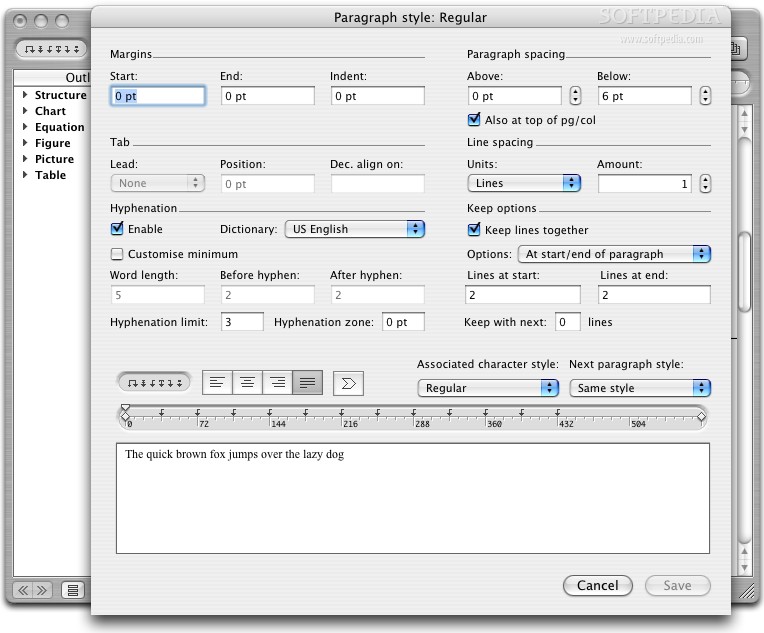

In other cases, it seriously shortens the path toward a finished ePub document. In Many cases, it even allows you to get rid of specialized ePub editors, and use Mellel alone. The ePub format is the de-facto standard for electronic publishing, and Mellel's support of the format is extensive. You can now export Mellel documents to the ePub format. Virtually any feature in Mellel that can be exported is exported to this format, and the formatting should look very-very similar, with some small exceptions resulting from differences in the ways which Mellel and MSWord render text. This format is an open format used by many word-processors but in particular MS-Word (which is not surprising since Microsoft(tm) originated it). But times they are a changing and Elvis have certainly left the auditorium so we came up with export support DOCX format. RTF was a universal (and documented) format providing a good solution for those who needed to export to Word format. Mellel allowed you to export to the RTF Word Format since circa when Elvis was still in the building. A Find session that would have lasted for hours can be squeezed into 2 minutes of running the entire set all at once.New Features in Mellel 5.0 Export to Word Format (docx) And Mellel does that too! All your saved Find Actions can be managed, organised in sets and run all at once via the Find Sets dialogue. But then again, you probably need to run 10 or 20 or 300 of those with any text, or run a different set of Find Actions with different tasks.
To facilitate this, Mellel also allows you to save Find Actions you can run at any time. More complex is saving a Find and Replace action, which you use often (e.g., eliminating double spaces and other gremlins). Mellel allows you to save such expressions as Find Expressions. The simplest repeat task is re-using a find expression (find anything in parentheses, any word, anything in bold, etc.). And here is where Mellel is one of a kind. If any part of your work involves editing, you're probably painfully aware of that. The thing about Find and Replace is that it is very often Find, Replace and Repeat. To find and replace, Mellel offers you an excellent set of features: it allows you to search your manuscript for a specific string, for a more generalised category (like an alphanumeric character, a character range, and so on), to set where the find will be performed, limit it by styling, and use a Regular expression-like search language which allows you just about anything else. Another, less obvious, purpose is to keep tabs on linguistic and stylistic issues in your manuscript. One is obvious: finding stuff and replacing it with something else. They will be automatically added to the document.įind and Replace serve two purposes. And just for kicks: you can use the Outline as an Outliner, creating all your headings from within the Outline. More important than this: Mellel's Outline allows you to move headings up and down the document or up and down the document hierarchy: For example, you can simply drag to switch the order of chapters, turn a chapter into a sub-chapter (or the other way around), and Mellel will automatically change the headings numbering, styles, and so on to fit the new location. Using our sophisticated Auto-Title mechanism, it allows you to add headings easily, navigate between them, add comments, tags and markers to headings, and use a smart filter to easily locate a heading based tags or content. Mellel's Outline is the perfect tool for this task. The Outline allows you to orient yourself within the document, navigate it, and perform global changes. And the more complex your document is, the more essential it becomes. An Outline is one of essential tools when working with a complex document.


 0 kommentar(er)
0 kommentar(er)
